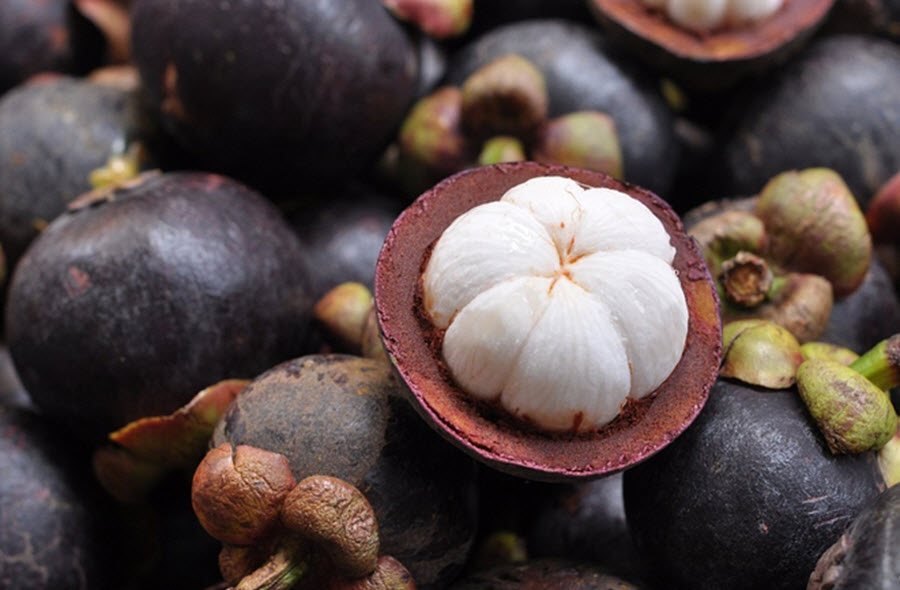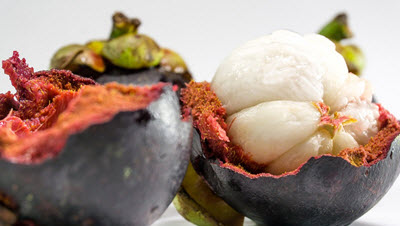Mangosteen

The mangosteen or mang-khut is not to be confused with the mango. It grows on the tropical evergreen tree of the same name in Southeast Asia. The fruit is in season from May to July and is plentiful in Thailand.
Its popularity varies ranging from being viewed as a bit overrated to being highly coveted. For instance, in Jamaica, the mangosteen is not nearly as popular as the pineapple or mango. On the contrary, due to air transportation and modern refrigeration techniques, it is certainly more popular in colder climates. It is still hard to find at your local grocery compared to other tropical fruits.
The mangosteen has been described as the most delectable and delicious fruit, and has been called the queen of fruits. This title is rumoured to have come from a story where Queen Victoria of Great Britain offered anyone a reward if they could manage to bring her the fruit. Of course, all efforts failed, since the fruit ripened and spoiled before the end of the months long journey from Southeast Asia to Britain.

It is packaged in a thick inedible purple rind and is a sectioned fruit. It yields four to eight triangles of juicy cottony white meat. It is held into place with a green leathery calyx on the stem.
It is peculiar in taste, having a sweet and tart flavor simultaneously. Be careful in peeling, for the juice from its red interior rind will cause a stain.
The most popular way to eat a mangosteen is raw, sectioned and separated from the rind. You will know if the fruit is ready and ripe to eat if it pulls away from the rind easily by squeezing the sides.
Thai cooks also find the mangosteen desirable to use in various savory dishes, thereby adding a sweet note. Sectioned mangosteen is also a lovely addition to a salad tossed with the fruit and a lemon based dressing.
With its sweet taste and content high in vitamin c, the mangosteen can be an excellent addition to any healthy diet.
Few fruits can boast the health benefits of the mangosteen. It contains 20 of the 200 xanthones found in nature, which are incredible compounds found to boost the human immune system.
This super fruit is so jam packed full of magnesium that it can be eaten in effort to aid in blood pressure regulation as well as to control minor circulatory problems.
Cancer studies have tested mangosteens and have shown that they can slow the growth of cancer cells, specifically colorectal. Scientists are hopeful that they will help with other cancers like prostate and skin cancer. Studies have even shown where the mangosteen may be chemopreventive, usurping the need for chemotherapy.
The question is not whether the mangosteen is tasty or good in recipes or pleasing to the eye, but rather how good it is for you.
With all of its powerful vitamins, minerals and cancer fighting agents, its wonderful taste and lively flavor is just an added bonus.
